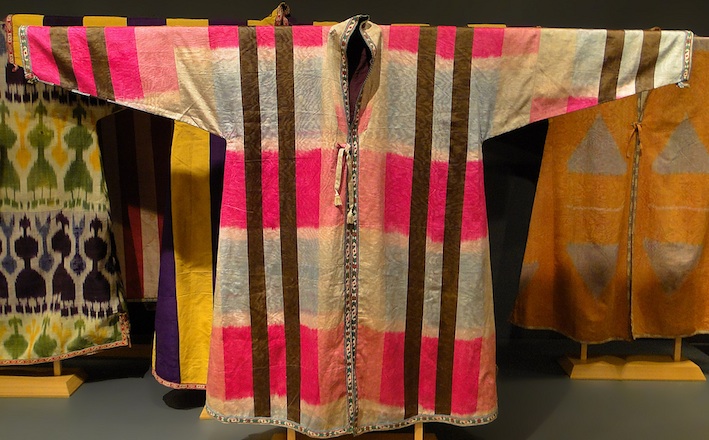Commentary on Matthew 22:1-14
Matthew is especially rich in parables featuring final judgment imagery.
Where Mark never mentions weeping and gnashing of teeth, and Luke does so only once, Matthew does on six occasions, including this parable. Along with the wedding banquet, Matthew includes the parables of the weeds and the wheat (13:24-30), the good and the bad fish (13:47-50), unforgiving servant (18:23-35), the tenants (21:33-46), the faithful and the unfaithful slave (24:45-51), the bridesmaids (25:1-13), the talents (25:14-30), and the last judgment (25:31-46).
In Year 1 of the Narrative Lectionary the five Sundays of Lent feature four of these parables. Lent is a season of opportunity. And lost opportunity can be a terrible thing.
An element of surprise
Matthew’s judgment imagery massively outweighs that of the other Gospels, but it comes with a twist: a frequent, but not universal, element of surprise. In the parable of the talents, how can slaves know whether to invest or to bury? What “wisdom” distinguishes the bridesmaid who brings extra oil — but doesn’t devise a plan to economize with the other bridesmaids? We expect goats to feign disbelief at their goat-ly identity, yet do we not wonder that the sheep are no less surprised? Matthew’s world spares no room for self-assured complacency.
“On that day many will say to me, ‘Lord, Lord … ” Jesus intones, but “Then I will declare … I never knew you” (Matthew 7:22-23).
The wedding banquet parable includes this strange mixture of complacency, judgment, and surprise. Before we delve into it more directly, let us take a step back to for a broader look at Matthew.
A gentle severity?
In writing commentary, we scholars rarely step down from our authoritative “commentator” voices. In this case it is necessary to do so. The phrase “gentle severity” is problematic in all sorts of ways. It can describe the demanding music instructor or track coach, a person who does nothing but bless us with challenges. But the same language can cross over into the domain of abuse, the discourse of the now-threatening, now-comforting tyrant.
Interpreters of Matthew had best tread cautiously. Our listeners will be attuned to these possibilities.
Among the Gospels, Matthew’s distinctive voice is that of stern command. “You have heard it said, but I say to you,” repeats Jesus in the Antitheses of the Sermon on the Mount (5:21-48). “Be perfect, therefore, as your heavenly Father is perfect” (5:48). “Whoever loves father or mother more than me is not worthy of me” (10:37). “If your hand or foot causes you to stumble, cut it off and throw it away” (18:8). Even in the Great Commission, Jesus commands disciples to instruct new converts “to obey everything that I have commanded you” (28:20). Cheap grace held no temptation for the author of Matthew.
So domineering is Matthew’s voice that we can easily overlook the gentleness that sustains such rigorous discipleship. Matthew’s Jesus is Emmanuel, God with us (1:23), and he is present whenever his followers gather (18:20; 28:20). Disciples are to “change and become like children” rather than to prevail by sheer effort (18:3). Gentle and humble is this Jesus, who places an easy yoke and a light burden upon his workers (11:29-30).
I cannot tell preachers how to weigh these factors. The balance between surprise and demand is sensitive at best. But this balance brings us very close to the heart of Matthew’s witness — and to the parable of the Wedding Banquet.
A wedding banquet
It is a wedding, after all. Weddings are to be joyous occasions. In a food-scarce world, banquets all the more so. Psalm 23 chooses a lush picnic as an image of personal security. Running even more deep is Exodus imagery, God’s provision for Israel in the wilderness. We recall that Jesus, like Moses, feeds the crowds in the wilderness (a detail the NRSV obscures; Matthew 14:13-21). Perhaps most importantly, Jesus has already compared the kingdom of heaven to a great banquet attended by Israel’s patriarchs, with would-be “heirs of the kingdom” thrown into outer darkness weeping and gnashing their teeth (8:11-12). The resonance with the Wedding Banquet is too strong to dismiss.
Weddings can also go poorly, especially when they reveal fault lines that are already present. Pop culture will never be the same after the Game of Thrones “Red Wedding” episode, a revenge massacre on a massive scale that has far displaced the runaway bride from Smokey & the Bandit in popular memory.
The wedding in Matthew 22 goes poorly. One would expect the invited guests to attend — the host is, after all, a king. The guests are not surprised: they have been invited; the announcement is simply that things are prepared and it is time to come. “They made light of it,” the parable goes.
Then things get weird, as they do in Jesus’ parables. The guests are wicked. They abuse and kill the king’s slaves. This is a narrative lectionary, so we are not pursuing source or redaction criticism, but things escalate in Matthew far beyond Luke’s version of the parable (14:15-24). The king strikes back with devastating force. That is what aggrieved kings do.
The B-List
Preachers will listen carefully to the details of Matthew’s parable, as Luke’s version has probably taken greater hold in our imaginations. In Matthew, the guests are invited and gathered, not compelled, and they are both good and bad (22:9-10). This pattern could be consistent with Matthew’s message that the last have become first and the first last (19:30; 20:8, 16), a theme that rides alongside condemnation against the Temple authorities. The imagery of abusing and killing the king’s slaves resonates with the parable of the Tenants, directed explicitly against the “chief priests and Pharisees” (21:45).
Matthew cannot leave things well enough alone, nor can the king. He comes in to inspect the guests: the Greek theasasthai suggests more than just “seeing.” The king is inspecting. And one poor soul lacks a wedding garment. Into the outer darkness with him! Weeping and gnashing of teeth.
Here commentators debate. In my teaching I have tended to side with the poor guest, arguing that he started the day uninvited: how could we expect him to dress properly for this wedding? Upon further reflection, I realize that he has indeed received an invitation and the other guests have adorned themselves properly. Only this guest has failed to follow through.
The sad thing is: this poor man is worse off than he would have been had he never been invited. He would have missed out on the banquet, but he would not have been bound to agonize. There it is with Matthew and with Lent. The arrival of the Gospel brings a sense of accountability that otherwise goes missing. Halfway measures, it seems, are of no avail.
PRAYER OF THE DAY
God of celebration, you have invited all people to rejoice in the goodness of your love. Help us to be hospitable to all people at your banquet, so that all might receive your blessing. We pray these things in the name of Jesus Christ, our Savior and Lord. Amen.
HYMNS
Let us go now to the banquet ELW 523
As we gather at your table ELW 522
I am the bread of life ELW 485
CHORAL
Bread of life, we pray you, Thurlow Weed


March 24, 2019